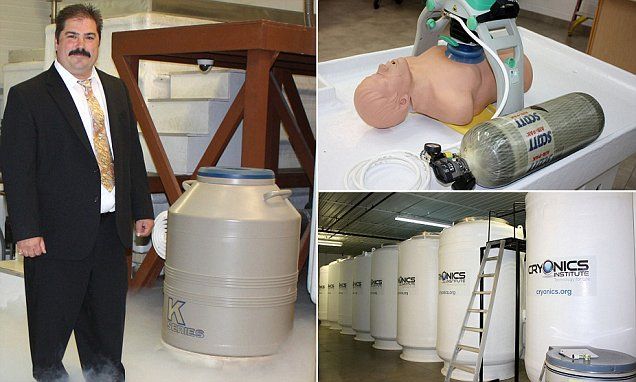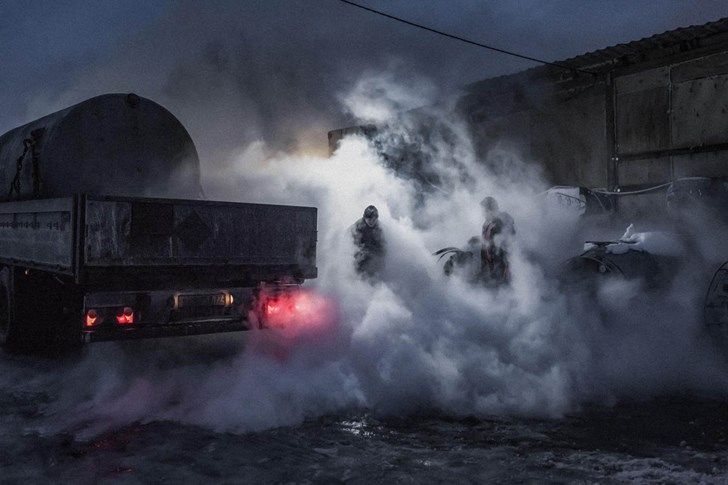https://www.spreaker.com/user/thearseniobuckshow/interviewee-8-bioquarks-ira-pastor-on-st
Category: cryonics

Bioquark Inc. — Conferences on Death / Death Reversal — Ira Pastor
Two pivotal conferences on the topic of “death” coming up!!
First at the INSERM Liliane Bettencourt School on March 16–18 will be “Death: From Cells to Societies — Aging, Dying, and Beyond” -
Then, April 11–13 at Harvard Medical School, will be “Defining Death: Organ transplantation and the 50-year legacy of the Harvard report on brain death”
http://bioethics.hms.harvard.edu/annual-bioethics-conference-2018
An important inflection point for all!!


Humans frozen
Frozen corpses could be brought back to life and made to look YOUNGER than when they died using stem cell injections, claims expert…
EXCLUSIVE: Dennis Kowalski, President of the Michigan-based Cryonics Institute, has claimed scientists could revive a frozen human corpse by using stem cells to help repair damaged cells.


These People Believe Death Is Only Temporary
Waiting on research advances is the rationale behind cryopreservation, and more broadly, a worldview known as transhumanism. A person killed by cancer or heart disease could reasonably be revived in a future when such ailments no longer exist. “They believe in the advance of technology,” says Giuseppe Nucci, an Italian photographer who visited with transhumanists and toured the facilities of Russia-based cryonics company KrioRus. “They hope that someone will wake them up.”
This hope, that the future will vanquish the ills of the present, is as old as the first civilisations that realized that with each passing year life got a little better. The Russian philosopher Nikolai Fedorovich Fedorov helped create an early 20th-century movement known as cosmism that was rooted in the idea that, given enough time, humans could defeat evil and death. If the human life span was too short, then the simple solution was to extend it, even after death, and suspend its decomposition until the world caught up.
 Employees of a liquid nitrogen and dry ice factory on the outskirts of Moscow are shrouded in fog while refilling their liquid nitrogen tanks. Founded by former KrioRus employees, the company now supplies them. PHOTOGRAPH BY GIUSEPPE NUCCI
Employees of a liquid nitrogen and dry ice factory on the outskirts of Moscow are shrouded in fog while refilling their liquid nitrogen tanks. Founded by former KrioRus employees, the company now supplies them. PHOTOGRAPH BY GIUSEPPE NUCCI
